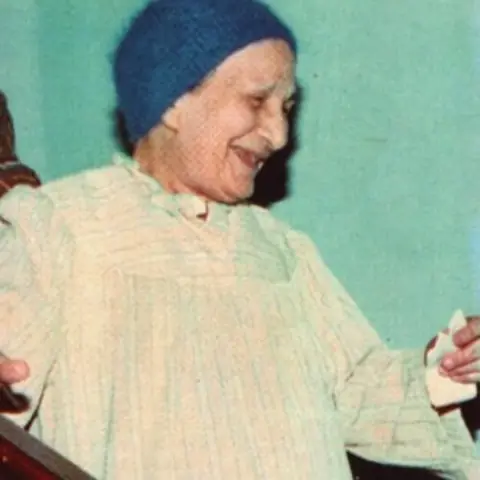In the heart of Egypt’s vibrant spiritual traditions, Miss Safsaf Mohamed Hassan (d. mid-1990s) remains a legendary figure.
Widely regarded as the most famous spiritual healer in Egypt and the Arab world, she practiced a unique form of healing that combined Islamic spirituality, Egyptian folk beliefs, and paranormal mediation including alleged communication with jinn (supernatural beings from Islamic cosmology).
Healing Through Spiritual Mediation
Contrary to sensationalized modern accounts—which falsely claim Safsaf was married to a king of the jinn or lived isolated among spirits—credible sources and eyewitnesses affirm that her practices were firmly rooted in Islamic faith.
Her healing sessions began with the invocation of God's name (Bismillah) and included recitations of Quranic verses, firmly establishing her reliance on divine healing rather than forbidden occult practices.
Safsaf emphasized in her written instructions: "Healing comes from God. We merely ask and pray." Her method was strictly spiritual, avoiding any material gain, as she never accepted payment or gifts from those she treated.
Origins of Her Spiritual Gift
Safsaf’s journey into spiritual healing began in the 1940s after a mysterious illness that baffled doctors. Following the death of her father, a respected judge, she sought help from Ahmed Fahmy Abu Khair, a prominent spiritual healer of the time.
Not only was she cured, but Abu Khair also recognized her rare ability to act as a spiritual intermediary, guiding her to assist others in healing.
Over time, Safsaf began treating more people, eventually opening her own spiritual clinic in her three-story home in Cairo's Shubra district, which she named The House of Spiritual Healing.
The Healing Rituals
Safsaf treated patients in two ways:
In-person group sessions every Monday night (considered spiritually significant) that sometimes lasted until dawn due to high demand.
Remote healing: Patients sent her letters describing their conditions. In return, she sent back a standard prayer and instructions emphasizing one key ritual:
Sleep alone in complete darkness every night until healing is achieved.
The importance of darkness stemmed from her belief shared in parts of Islamic and Egyptian spiritual thought that it facilitates easier communication between human spirits and the metaphysical world.
Safsaf explained that during healing sessions, she would "feel" the illness with her hands, pushing out negative energies or expelling the affliction through prayer, touch, and the assistance of an unseen spiritual guide. She worked with cases ranging from liver disease and diabetes to infertility and kidney stones, always attributing success or failure to God's will alone.
Spiritual Beliefs and Egyptian Islamic Context
In Egyptian folklore and Islamic spirituality, jinn are entities created from smokeless fire, capable of influencing the physical world. However, Islam strictly forbids worshipping or seeking forbidden alliances with them.
Safsaf’s approach stayed within the accepted Islamic framework—invoking only God, avoiding any magical or sorcerous practices condemned in Islamic teachings.
Her methods blended:
- Traditional Islamic healing (ruqyah)
- Egyptian folk practices involving spiritual presence
- Contemporary understandings of psychosomatic healing
Public Recognition and Legacy
Safsaf’s reputation extended beyond everyday people to include celebrities, doctors, and intellectuals.
Famous Egyptian actor Youssef Wahbi publicly credited her with curing him twice, and she was acknowledged by the British Spiritualist Association in London as one of the world’s foremost spiritual healers.
She remained modest throughout her life, living simply with her sister and relying solely on her late father's pension and family assets.
Two other prominent healers, Abdel Raouf Abdel Hamid and Abdel Wahab Dawood, assisted her in sessions, both emphasizing that faith and belief in the healing process were essential for success.
Safsaf’s story exemplifies the deep intertwining of Islamic faith, Egyptian folklore, and spiritual healing.
She lived and healed at a time when belief in spiritual mediation was strong in Egyptian society, yet she maintained her practices strictly within the bounds of Islamic morality emphasizing humility, compassion, and unwavering trust in divine mercy.
Today, her legacy remains a fascinating chapter in the rich cultural and mystical heritage of Egypt where the unseen world is not feared but respectfully acknowledged as part of the broader tapestry of existence.






No comments:
Post a Comment